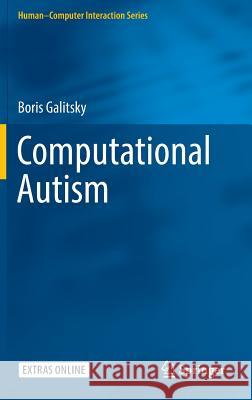Computational Autism » książka
Computational Autism
ISBN-13: 9783319399713 / Angielski / Twarda / 2016 / 380 str.
This book explores and evaluates accounts and models of autistic reasoning and cognition from a computational standpoint. The author investigates the limitations and peculiarities of autistic reasoning and sets out a remediation strategy to be used by a wide range of psychologists and rehabilitation personnel and will also be appreciated by computer scientists who are interested in the practical implementation of reasoning. The author subjects the Theory of Mind (ToM) model to a formal analysis to investigate the limitations of autistic reasoning and proposes a formal model regarding mental attitudes and proposes a method to help those with autism navigate everyday living. Based on the concept of playing with computer based mental simulators, the NL_MAMS, is examined to see whether it is capable of modeling mental and emotional states of the real world to aid the emotional development of autistic children. Multiple autistic theories and strategies are also examined for possible computational cross-overs, providing researchers with a wide range of examples, tools and detailed case studies to work from. Computational Autism will be an essential read to behavioral specialists, researcher's, developers and designers who are interested in understanding and tackling the increasing prevalence of autism within modern society today.











